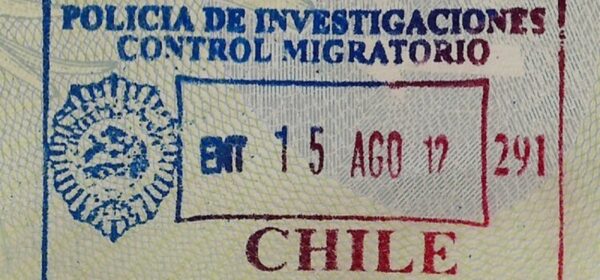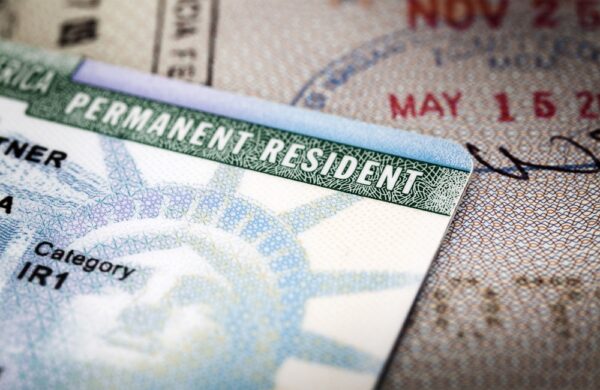Getting ready for the big move? Whether you're relocating for work, studying, or aiming for a green card, moving to a new country can feel like a roller coaster of emotions. You probably have some of the most common immigration questions like, “How long will it take?” or “Can I work while waiting?” Don’t worry; you’re in the right place. We will break down these immigration questions and even touch on some embassy interview questions for a tourist and visitor visa.
1. What Are the General Requirements for Immigration?
Almost every immigration process begins with a passport and a visa, they are your ticket into a new country. You might also need a work contract, a sponsorship letter, or proof of financial stability, depending on where you're going and why. Also, most countries require a clean criminal record.
Visas come in different types, from temporary and tourist visas to permanent residency. The process usually varies by country, but you should note and gather the correct travel documents, know the best visa type to apply for, go through the required visa application process, and hope for a successful outcome.
2. How Long Does the Immigration Process Take?
You're probably into your immigration process already and growing impatient or genuinely curious about the time frame. Well, sorry to break it to you, but the timeline can be anything from a few months to years, depending on what kind of visa you're applying for.
While work visas might be faster once you have a job offer, getting a family-based visa usually takes longer. Background checks, missing documents, or additional immigrant visa interviews can slow the process. And if your case gets flagged for extra review, you might be in for a long wait.
3. Is There a Way to Make My Immigration Process Faster?
Knowing if you can fast-track your immigration questions is one of the common immigration questions people ask. Fast-tracking your application process, also known as Expedite requests, is possible. For example, if you aim to go to the United States, you can make an expedited request through the US Citizenship and Immigration Services (USCIS). However, Expedite requests are usually reserved for some categories, including emergencies, exceptional cases identified by the federal government as urgent, organizations offering beneficial religious services, medical crises, health workers needed during a pandemic, professors needed for urgent research, and more. It all boils down to urgency, crisis, and humanitarian roles.
4. Can I Work While My Immigration Application Is Being Processed?
Can I work when my application is ongoing? This is one of the most common immigration questions people ask. Yes, you can work while waiting for approval, depending on what you’re applying for and the country you are applying to. For instance, if you’re applying for a US green card and want to work while at it, you can apply for the United States' Form I-765 for employment authorization while your immigration case is ongoing. It's easier if you've applied for a work permit or a specific employment-based visa.
However, if you're still on a temporary or tourist visa and want to apply for a permanent residency or your application process hasn't reached a particular stage, you might not have the legal status to work. Most importantly, you should know that getting caught working illegally is an infringement of the immigration policies and can lead to severe issues, including getting your visa denied entirely and other future immigration issues about that country.
5. What Should I Do If My Application Is Denied?
One of the heartbreaking things during the immigration application process is hearing that your application was denied, which is no fun. If your application gets rejected, you have the right to appeal, which is a whole process. The immigration appeal process differs based on the type of immigration you're applying for. If you do end up appealing, be prepared for another wait. It might take a while, but your persistence can pay off.
An application denial is not the end of the journey, as another thing you can do is to reapply and start the process all over again, this time around, in a meticulous way. Common reasons for denial include incomplete forms, missing documents, or failed background checks. To avoid this, double-check everything and make sure your documents are correctly arranged before submitting.
6. What Are the Rights of Immigrants?
Whether you're a student, a refugee, a political asylum seeker, or a permanent resident, you've got rights. Most countries offer access to healthcare, legal protection, and sometimes even education. You should also know that your rights can vary widely depending on your immigration status. For instance, permanent residents often have more rights than temporary visa holders, so knowing exactly where you stand and what you're entitled to is essential.
7. What Is an Asylum and How Do I Apply For It?
In immigration, asylum refers to the cover granted by a country to foreign nationals seeking a place to stay due to persecution, social unrest, or political opinion issues in their home countries.
According to the Universal Declaration of Human Rights, anyone can seek and enjoy asylum irrespective of the country or region they are from. Asylum seekers must prove that they face serious threats or danger if they return to their country of origin. If granted asylum, individuals can legally live in the host country and may eventually be eligible for permanent residency and citizenship.
8. Can I Sponsor a Family Member for Immigration?
Sponsoring a family member for a family-based visa can be heartwarming but complicated. First, you must prove that you can financially support them, depending on your monthly or annual earnings. Then, you'll need to submit forms, pay fees, and wait for approval. The process can take months or even years, so you must be patient. Once everything is in order, your loved ones can join you as they start their immigration journey.
9. Is There a Difference Between Non-Immigrant Visa and Immigrant Visa?
The main difference between a non-immigrant and an immigrant visa is the purpose and duration of stay. An immigrant visa is for individuals planning to move to a country permanently, often leading to permanent residency or citizenship. In contrast, a non-immigrant visa is for temporary visits, such as for tourism, business, study, or short-term work, with the understanding that the individual will return to their home country after their stay. Non-immigrant visas typically have strict time limits and conditions.
10. What Happens After I Get My Visa?
Congratulations! Once you have your visa, the real adventure begins. You'll need to prepare for your move, find housing, and familiarize yourself with local laws. Sometimes, you might need to register with local authorities or report to immigration services once you arrive.
And don't forget, holding onto that visa usually means following some rules, like renewing it on time, notifying authorities if your situation changes, and keeping your criminal history clean.
11. How Do I Know I'm at the Risk of Being Deported?
When you've successfully obtained your visa and settled into a new country, you need to be careful to avoid the risk of being deported. Many countries greatly frown upon illegal immigration. You may be at risk of deportation if you violate immigration laws, such as unlawful entry, overstaying a visa, committing a crime, or working without authorization.
Other risks include failing to maintain the terms of your visa, such as studying or working when your visa doesn't allow it. Receiving a notice from immigration authorities or a court order can also indicate you're at risk. It's essential to follow immigration rules strictly and seek legal advice or get an experienced immigration attorney if you believe you are at risk of deportation.
12. Can I Apply For a Marriage-Based Green Card If I Marry a US Citizen?
One of the most common immigration questions people ask is if they can become a green card holder if they marry a US citizen. Yes, marrying a U.S. citizen can earn you a marriage-based green card. Your US partner can file a petition (Form I-130) on your behalf, and you can apply for a green card through Form I-485 to adjust your status.
Getting a green card through marriage typically involves proving the marriage is legitimate, attending green card marriage interviews, and submitting necessary documents. Once the application is approved, you can have your permanent resident status.
Also, while your green card application is ongoing, you can apply for advance parole with the U.S. Citizenship and Immigration Service (USCIS). This usually takes about three months and is valid for up to a year. Advance parole will allow you to travel to the US without a visa.
13. What is The Green Card Lottery About?
The green card lottery, also known as the diversity immigrant visa, is a United States government program that offers immigration visas to individuals from countries with low immigration rates to the US. The whole green lottery is pretty random, as winners are selected randomly. Once the green card lottery is approved, winners can become green card holders, allowing them to work and live in the United States permanently. Suppose you're looking for permanent residence in the US, and you think you meet the eligibility criteria for a green card lottery. In that case, you can apply through the official website of the US Department of State.
Interview Questions for Tourist/Visitor Visa
Here are some embassy interview questions for a tourist visa. Likewise, if you’re preparing for a work or study visa interview, we have you covered.
1. What is The Purpose of Your Trip?
The question of why you're going to a specific country is a popular embassy question. To answer this question, avoid a blunt response like “for a visitation” or “for vacation.” Go for a more detailed but concise answer like “I’m going for a short two-week visit to New York for a Vacation.” This not only shows the intent of your travel but also shows your consular officer that you know what you're doing.
You must know the full details of your destination when answering this question, as more questions could arise from it. Another essential thing to understand is that the details in your documents must correspond with the answer you’re giving.
How Long Are You Staying For?
You need to be specific when answering this question. Mention the exact duration of your stay, whether a few days, a week, or a month. For example, you can say, “I plan to stay for two weeks to explore the city and visit key tourist attractions.” This shows that your trip is well-planned and that you have a clear purpose.
Where Will You Be Saying For Your Trip?
When answering this question, you should provide details about your accommodation. For example, you could explain that you've booked a room at a specific hotel in the city center because it's close to most of the attractions you want to visit. This shows that you've already made arrangements and that they are in order.
Do You Have a Return Ticket?
You will no doubt get this question. Always answer “Yes” if you've booked your return flight. You can elaborate by saying that you've already purchased your return ticket to ensure all your travel plans are set. If you've not gotten it, tell them as well, and mention that you're making arrangements to get it. This reassures the interviewer that you're committed to returning after your trip.
Conclusion
Navigating the visa application process and immigration interviews can feel overwhelming if you want to move to a foreign country. However, having answers to some of the most common immigration questions could make things smoother. If you're ever in doubt, don't hesitate to contact an immigration lawyer or consultant, as they will effectively guide you through the immigration process. Stay patient, stay informed, and hope for the best on your immigration journey.















